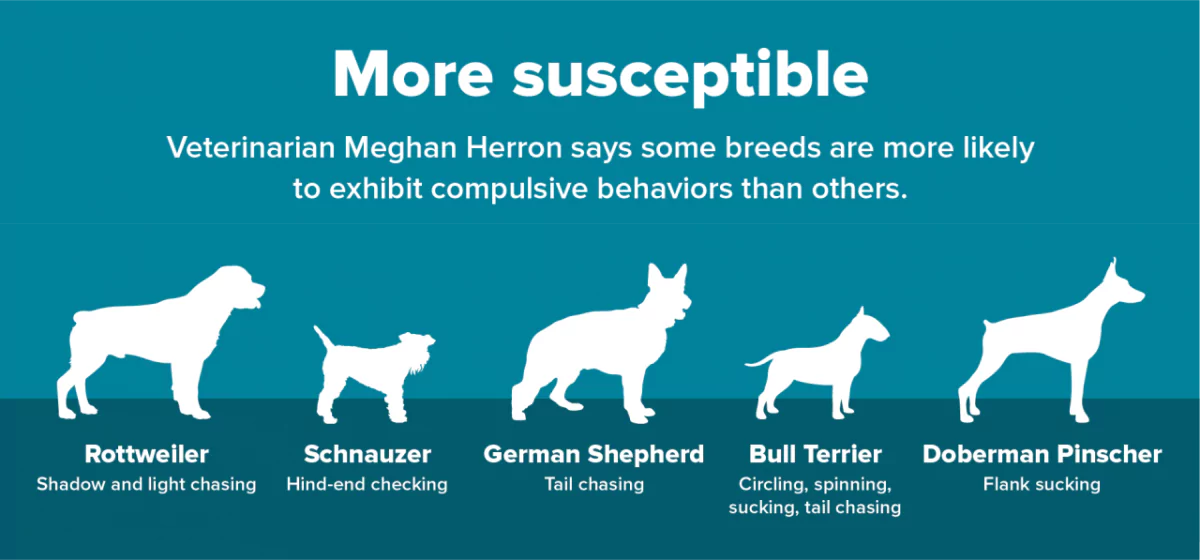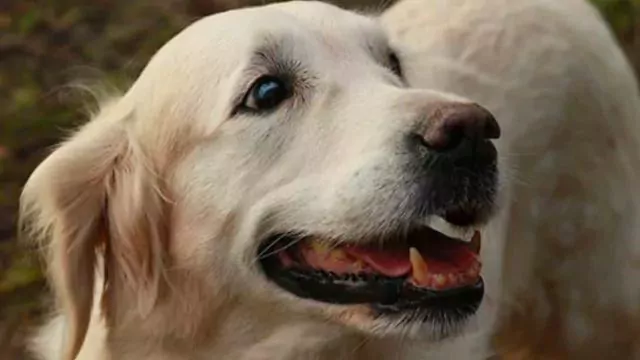Obsessive Compulsive Disorders in Dogs
Obsessive Compulsions in Dogs
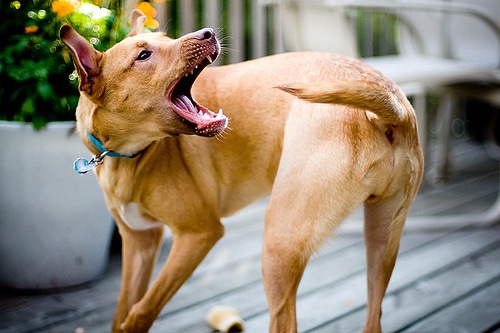
Often the problem can have its roots in a period of stress or we have encouraged the dog in certain actions by praising or giving attention to repetitive behaviour
It can also be genetically inherited through genes from the forbears. Cocker Spaniels, for instance, have a predisposition to guard objects and sometimes their own body space,
A dog’s brain is similar to a human’s, with a far smaller cortex, therefore the compulsive behaviours are so similar to human OCD. Constant hand washing, checking the door is locked, straightening things, constant cleaning, all the labels on cans or bottles facing the same way.
These are just a few of the many obsessions humans can suffer from. Dogs can and do suffer from numerous and wide-ranging obsessive behaviours. Common ones are spinning, tail chasing, fly snapping, shadow and light chasing, licking walls or feet, object guarding, sucking on toys or blankets, and guarding objects.
Dogs can get to a stage where they self-harm or destroy things, this is often related to separation anxiety. In reality, I can only cover some of these behaviours, or this article would be as long as a book.
Spinning or Tail Chasing: Bull Terriers, and particularly EBTs English Bull Terriers have a propensity for this condition. Though the bull breeds are not the only breed that suffers from this. Research by Professor Nicholas Dodson has suggested that the tail-chasing specifically in EBTs could be a form of Autism,
This has now been proved by Professor Dodman after a long and exhaustive study his work has been published despite the archaic BVA ( British Veterinary Association recently issued a statement that said there is no scientific evidence confirming autism in dogs.. Rubbish! (1) BVA States Dogs Cannot Be Autistic.
I notice that the BMA does not echo this sentiment because they are a professional organisation representing Vets, not an association that does not require compulsory membership Though you can get further information on this regarding Professor Dodman’s work (2) Can Dogs Be Autistic? I have also written an article called (3) Can Dogs Have Autism
The second most common breed for this condition is the Border Collie. In some cases it is genetic. Apparently, the spinning behaviour came from a successful show dog. It then passed on the gene as it was mated on numerous occasions. I have treated this problem on numerous occasions with a high degree of success.
I use a Jingler and Noise Aversion Therapy, by creating a specialised sound psychologically which is used as an interrupter when the behaviour starts and the Jingler which is also a secondary interrupter. See Clip from a TV series I was the behaviourist in at the bottom of this page.
Resource Guarding: Genetics can be a trigger for behaviours like resource guarding. In my experience, the culprits in this behaviour are predominately Cocker Spaniels. This would generally occur with solid coloured dogs. See my article on (4) Resource Guarding in Dogs
This behaviour is often mistaken for what is euphemistically called Cocker Rage Syndrome. That is a whole different thread on its own, see (5) Cocker Rage Syndrome on my website Once again, this stems from a genetic trait in a line of show breeds. It is still inherent in Cockers Spaniels and was first observed as far back as the early 1940s.
The dogs shown on the excellent infographic are just some of the dogs that suffer from OCD. Of course, any dog can suffer from this debilitating behaviour. As yes some of the breeders and owners are to blame for some of the behavioural issues as well.
Window and Wall Licking: I treated a dog recently for obsessive wall and window licking.
It was a rescue and came with this condition. I did not have the dogs full history; In this case, I do not believe it was genetic which would have made it more difficult to treat as that is inherited not learned.

That is often the case with wall or window licking. Most are learned behaviours and lack of stimulation and activity is the key.
Licking of this sort causes endorphins in the brain that are calming agents and helps with anxiety.
The action of obsessive licking helps the feeling of being abandoned lessen because of the endorphins it creates.
It also does not help when the dog has a lack of stimulation, as that also causes obsessive licking in these instances.
It was once believed that the licking took chemicals from the plaster or glass and that the action was also a calming agent. I do not believe that chemicals is correct. Though it is not always classic separation anxiety, it may be stimulated by long absences or could be related to the onset of dementia or Alzheimer’s.
Light and Shadow Obsession: This is a classic OCD and is normally caused by one of a number of stimuli. The most common are owner created. Often it may start accidentally when a person shines a light, or the sun catches on say a watch and causes a moving light.
The dog then reacts and chases the motion of the light. The owner finds it amusing and repeats it on a number of occasions and bingo, the dog has started on the road of shadow light chasing OCD. Other situations can stimulate the dog into this action.
It is often seen in dogs that are left for long periods. Curtains or blinds fluttering causing movement of the light streaming through, the dog finds it interesting to follow the light. once again endorphins are produced and OCD Occurs. The most common breed that suffers from this is the Border Collie. Other flock herding dogs can also succumb to this light or shadow stimulation.
This can be treated in some cases with serotonin, though you can break the circle of OCD by using something called Noise Aversion Therapy (NAT) I have used NAT on numerous dogs with OCD with a high degree of success.
I find rgw first port of call for this therapy for OCD is the Jingler See how this works (6) The Jingler
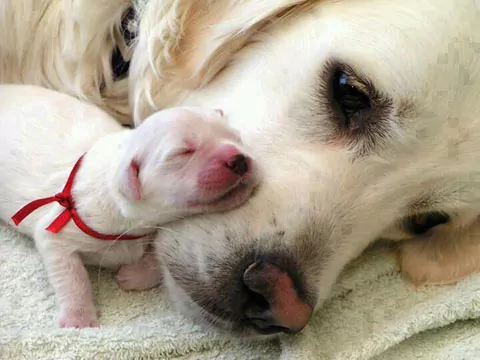
Observational Stimulus: Sometimes the OCD is created at a very young age. In this type of case, the mother with a litter of pups may have a learned rather than a genetic OCD base.
When the puppies eyes open around three weeks old, they observe the mother and copy her actions. It is a monkey see monkey do scenario.
The pups are then effectively indoctrinated into OCD behaviour by the obsessive mother.
It is vital when choosing a puppy, to observe the mother, and if available the father and any other generations of dogs that may be living in the house where the pups were born.
Treatments: There are a number of treatments. Drugs, concentration exercises, alternative stimuli, desensitisation and interrupters and in some cases diet, Interrupters are normally based on sound aversion and must be created psychologically.
The idea of this treatment to make the dog believe their actions are causing the interrupter. Therefore, for the sound to stop they must cease the actions that are creating the sound. However, the interrupter must be set in a specific psychological way. There are also many positive ways that these behavioural problems can be helped. I have covered this in a number of articles I have written. I could really go on about classical OCD cases. But once again that would take almost a book.

Other Treatments That Could Help: Change of Diet: A good quality food helps in many cases.
Most cheap food has cereal as a filler, this can lead to a lack of serotonin, and low serotonin has been linked to aggression, anxiety and repetitive behaviour.
Basic training to help build up confidence, (6) The Jingler can be of help here, as it helps it focus on the sound rather than the things that are stimulating the dog into certain actions.
Dog Food: A nervous dog that eats food overly-high in poor-quality protein or sugar can experience even higher levels of anxiety.
Consider switching to a food with quality protein, instead of “meat derivatives” grain, fillers, colourants, preservatives, and certain E number which are found in many commercial dog foods.
These ingredients can cause hyperactivity, aggression and aberrant behaviour in both humans and dogs. BTW the belief that high levels of proteins in dog food causes hyperactivity and stress. Plus problems with the liver and kidneys is a myth. In reality, it is the quality of the protein that causes the problem, not the level. I have now written an article on the subject as it is a common misapprehension.
Bakers and Pedigree: The top-selling dog food in the UK is Bakers Complete. This product has a lot of additives. We are constantly told that some E-numbers are not good for you and can cause medical and behavioural problems.
When it says on the packet “Animal Derivatives”. This means that the protein is of low quality. It often comes from the less desirable parts of an animal, such as the feet and guts. Bakers use the bare minimum level of protein required by legislation. It is generally recommended you provide a higher level of protein. in your dog’s diet than what Bakers Complete supplies. Currently, in a packet of Bakers Complete, there are 13 E-numbers. We laugh at McDonald’s for having 7 Es.
I have written an article on (7) Bakers and Pedigree. Which. It is worth a read. I would really appreciate anyone putting it on their Twitter and Facebook for others to understand exactly what they are feeding their dogs. I do not sell dog food, therefore, I have no axe to grind, though I have done a number of tests over the years culminating in an article on (8) Dog Food and Behaviour. Where I recommend certain brands.

He or she would more than likely have crouched down as low as possible body rigid barking and yelping at this frightening experience,
If the noise and the monster continued, the puppy would have run away, probably under a table or a chair.
If it came closer it would have growled and snarled probably making darting and biting motions,
especially when you playfully pushed the Hoover closer to see the pup’s reaction. Anything ring a bell?
Some pups will be SO traumatised by the noise and the movement of the cleaner that they go into total freeze mode.
Our initial instinct would be to pick up and cuddle and comfort the frightened puppy. Perfectly natural human behaviour, something is frightened we automatically want to nurture it.
Unfortunately, to a dog’s mind, nurture when fearful actually confirms the fear, rather than alleviating it. Comforting reinforces the belief that the fear is real. This has the opposite outcome of what we intended by making the dog more fearful.
If this happens when the puppy is between 8 to 10.5 week old, which is the first of several fear periods throughout the dog’s life. Then that fear could be so deep-rooted as to be almost impossible to eradicate completely.
Some OCDs can be caused by paediatric neutering. Neutering before the dog had reached either physical or mental maturity can have a really detrimental effect.. Read my article on (9) Neutering Dogs. I believe that in America they use the word fix, as a term for neutering. Makes no sense to me, How can you fix something that wasn’t broken in the first place?
Licking Paws and Lick Granulomas: Many of our vets believe that obsessive licking is related to an initial problem with either trauma to the leg, a fracture, osteoarthritis, a fungal or bacterial infection. It could also be related to a food allergy and too many fillers, wheat, or gluten.
I believe that is part of it but it also can be caused by psychological problems such as separation anxiety or other types of anxiety, when anxiety is the trigger the constant licking causes endorphins in the brain which creates a feel-good factor, therefore, the dog repeats the behaviour to get his endorphin fix.
Boredom, stress, inactivity and allergies such as pollen, grass seed and the fungicides that are often sprayed on the fields, can trigger an episode of obsessive licking. What is important is to try and find what the trigger is, then try and eliminate the causation then you should be able to treat it.
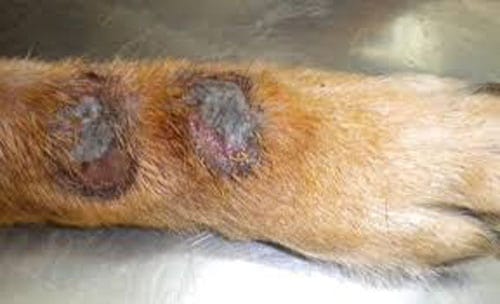
Behavioural Intervention: A full cure or fix may not always be possible in some cases of aberrant dog behaviour. Behaviourists are not Harry Potter.
There is no magic wands or angel dust. It may mean that only controlling the problem is the best outcome you can get
Think of some behavioural problems, as if the dogs are alcoholics. They can be in remission, but they will always be alcoholics.
Some of the problems above could be related to what I can only describe as Autistic spectrum disorders (ASDs}
Though it is uncommon. I have treated a couple of dozen cases over the last five years.
I and others believe that Autism and Asperger’s is what we are seeing and treating in some of our dogs. These types of dogs crave order and strict routines, any aberration from the routine may cause unexplained reactions like aggression, anxiety and distress.
Dogs that suffer from this type of problem are generally not good at eye contact. I have just written an article on the subject. You can see it here. (9) My Thanks to Vet Meghan Herron For the infographic.
©Stan Rawlinson September 2013
Updated regularly the last update July 2019
(1) BVA States Dogs Cannot Be Autistic
(4) Possession Aggression Resource Guarding
(5) Cocker Rage
(6) The Jingler
(9) Neutering Dogs
(9) My Thanks to Vet Meghan Herron
.

